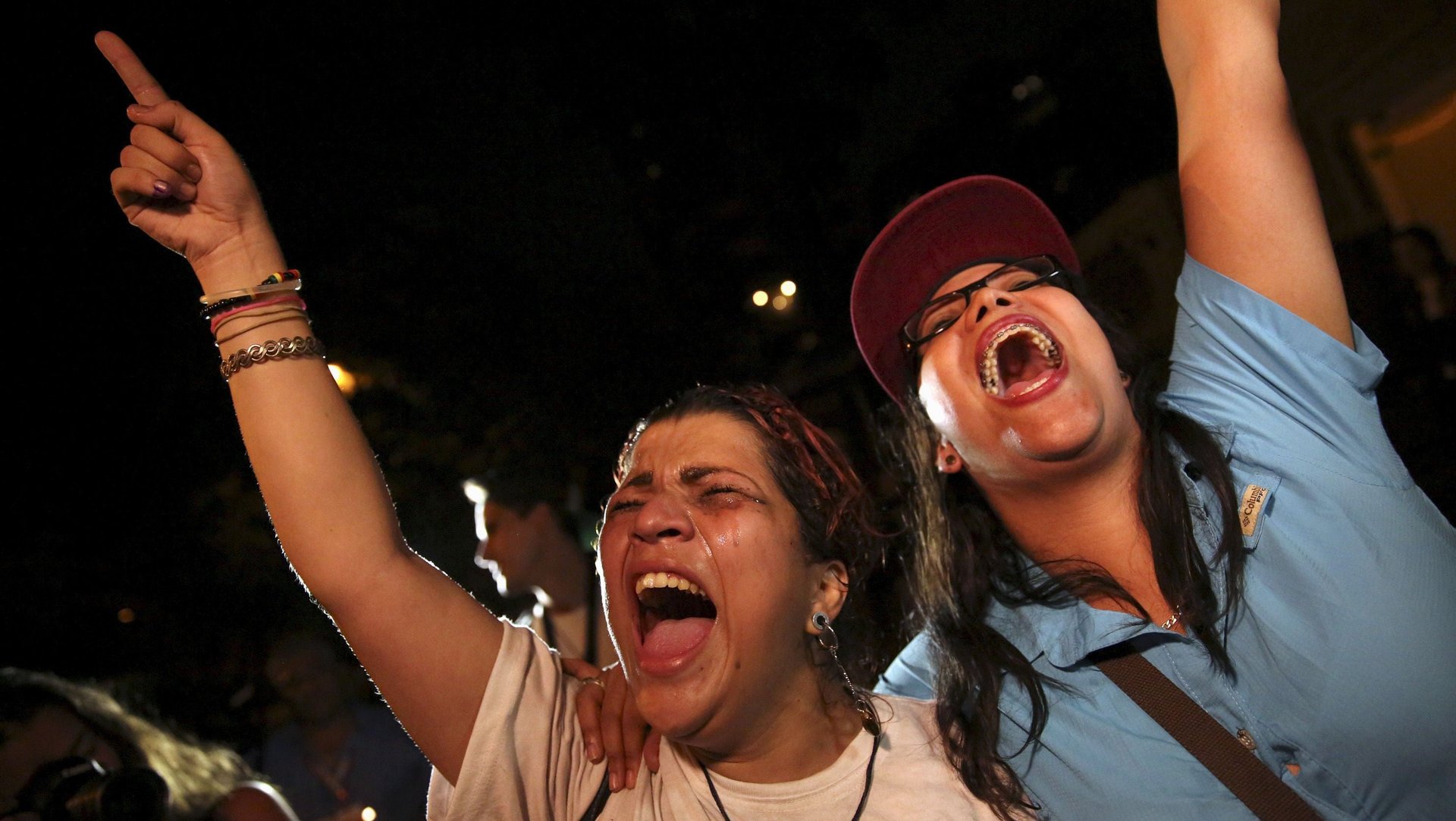The opposition still managed to win Venezuela’s most undemocratic elections
The opposition won control of parliament in Venezuela’s crucial elections on Dec. 6 despite the ruling party’s tactics to maintain power.


The opposition won control of parliament in Venezuela’s crucial elections on Dec. 6 despite the ruling party’s tactics to maintain power.
The Democratic Unity Roundtable (MUD, in its Spanish acronym), a 19-party coalition, crushed the government, winning 99 of 167 seats with 22 still to be announced, according to Venezuela’s election arbiter. That’s the biggest win for opponents of the Chavista regime since its namesake, former president Hugo Chávez, took office in 1999. It won’t be clear how much damage the opposition could inflict on the government until all the seats are settled. If MUD ends up winning two thirds of the seats—which, by its own count, it already claims it has—it would have the necessary votes to launch a recall effort against the incumbent president, Nicolás Maduro.
The victory is in large part due to generalized frustration with out-of-control inflation and the scarcity of basic goods that have Venezuelans lining up outside supermarkets for hours. Violence and crime are rampant too.
Ahead of the elections, the government rolled out a series of measures to derail the opposition, from gerrymandering, to using government funds to promote its candidates, to confusing ballots. The Organization of American States, which was banned by Venezuela from participating as an international election observer, chided the regime over its pre-electoral behavior in an angry letter (link in Spanish.) Political commentator Andrés Oppenheimer called the elections the most “undemocratic” in the country’s recent history.
Meanwhile, the threat of violence loomed over election day after an opposition candidate was killed Nov. 25, and comments from Maduro that he would take to the streets if results were adverse to his party.
But on Sunday, Venezuelans went to the polls in relative peace. The government continued its efforts to sway the vote—Guachimán Electoral, a crowdsourcing platform created to collect electoral complaints, recorded hundreds of them on election day. But that didn’t deter the majority of voters from checking the opposition box, even if some didn’t even know the name of the candidate (paywall). They just wanted change, they told the New York Times.
At that, Maduro conceded defeat even as votes were still being counted.